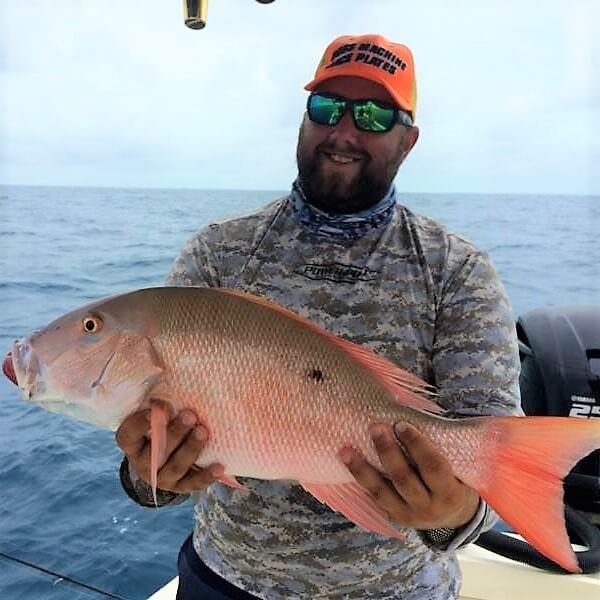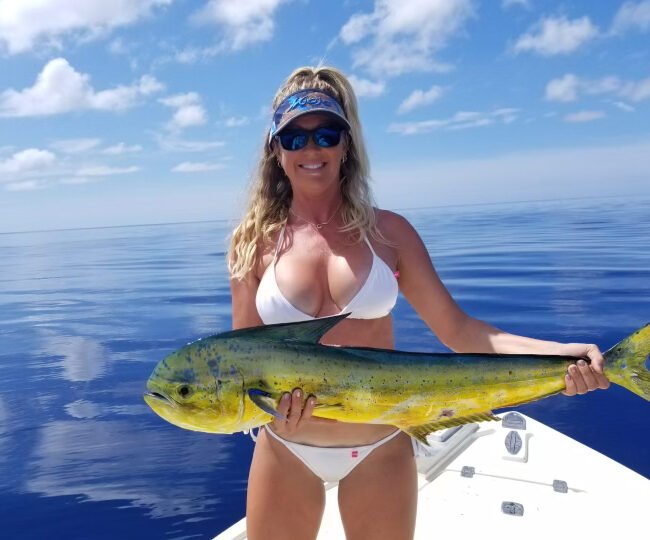
Beyond risk analyses and pro formas, deals come down to relationships. When leaders like and trust each other, deals close. When they don’t, even the best deals fall apart. Fishing charters are the ultimate setting for building these essential connections.
The Real Currency of Deals: Trust and Rapport
In the world of business and politics, numbers matter. Risk analysis, market data, financial projections—they all have their place. But once the spreadsheets are done and the PowerPoint decks have been reviewed, the fate of a deal often hinges on something far less tangible: whether the leaders involved genuinely like and trust each other. It’s a simple truth that’s been proven time and again, from international diplomacy to boardroom negotiations.
Churchill, Stalin, and the Cold War: A Cautionary Tale
Consider the example of Winston Churchill and Joseph Stalin during World War II. Though both leaders had a common enemy in Nazi Germany, their personal relationship was fraught with tension and distrust. Churchill, a staunch anti-communist, never warmed to Stalin, and their strained interactions planted seeds of mistrust that ultimately blossomed into the Cold War. Despite shared goals on paper, the lack of personal rapport between the British Prime Minister and the Soviet leader undermined any long-term alliance.
Modern Echoes in Global Politics
We see the same dynamic play out in modern times. In 2019, negotiations between the United States and China for a comprehensive trade agreement stalled—not because the economic incentives weren’t aligned, but because of personal tensions between President Donald Trump and Chinese President Xi Jinping. Trump’s public criticism and Xi’s reserved demeanor created an atmosphere of distrust, delaying potential resolutions despite mutual economic benefits.
Similarly, in 2012, trade agreements between India and Pakistan faltered due to personal and political animosity between leaders, despite the clear benefits of increased trade for both economies. And in 2009, gas supply negotiations between Russia and Ukraine broke down because of hostility between Vladimir Putin and Yulia Tymoshenko. The result? Disrupted energy flows and economic losses for both nations—proving once again that deals don’t happen when leaders don’t get along.
Business Deals Derailing Over Personalities
The corporate world is no different. The early talks for the AOL-Time Warner merger in 2000 faced hurdles due to personal animosity between AOL’s Steve Case and Time Warner’s Gerald Levin. Their clashing egos nearly derailed a deal that, on paper, had strategic merit.
Apple and Samsung’s potential collaborations on component supply were hampered by personal tensions between Apple CEO Tim Cook and Samsung’s leadership, particularly Lee Jae-yong. Their rivalry, fueled by ongoing patent lawsuits, hindered deeper cooperation—despite clear mutual benefits.
Even in the automotive sector, Volkswagen’s Martin Winterkorn and Fiat Chrysler’s Sergio Marchionne couldn’t bridge their personal differences, preventing a partnership that could have strengthened both automakers in a competitive market.
The Problem with Traditional Networking: Why Nightclubs and Gentlemens’ Clubs Don’t Cut It
Many executives attempt to build relationships in nightclubs, luxury dinners, or exclusive clubs. But these settings often fall short. They can feel transactional, superficial, or worse—contrived. In a dimly lit club, it’s hard to build genuine trust. There’s little room for authenticity when everyone is putting on a show.
And while golf is often hailed as a classic networking activity, not everyone golfs. Golf can be intimidating for beginners, slow-paced for some, and limited in the natural conversations it fosters. It’s a good option, but not always the best.
Fishing Charters: The Ultimate Icebreaker
Fishing charters offer something unique. They put people in a relaxed, open setting where they can share an activity, enjoy the outdoors, and create authentic memories. Everyone eats. Everyone can hold a rod. Everyone can get a little sun and fresh air.
On a boat, you’re in a shared adventure—learning together, celebrating each other’s catches, laughing when a fish gets away. The atmosphere fosters conversation, storytelling, and even a little friendly competition. Barriers drop, egos soften, and people connect as fellow humans, not just as titles on a business card.
Unlike a nightclub or a fancy dinner, a fishing charter isn’t about flash. It’s about shared experience, patience, and the thrill of the catch. It’s about creating moments where trust can grow naturally.
Combining Charters with Conventions: A Power Play for Relationship Building
Many deals start at industry conferences, trade shows, or seminars. These events are great for information exchange but often lack the personal touch needed to cement relationships. That’s where fishing charters come in.
Imagine this: After a day of panels and networking at a business convention in Florida, you and your potential partners board a boat for an afternoon on the water. You cast lines, reel in fish, share a cold drink, and swap stories under the sun. By the time you’re back on shore, you’re not just colleagues—you’re friends.
This combination of professional learning and personal bonding is unbeatable. It’s the missing piece that transforms cold introductions into warm handshakes—and warm handshakes into signed deals.
Why This Matters: The Human Side of Business
All the analytics in the world can’t replace gut feel. And gut feel is built on trust, on the sense that the person across the table is someone you can count on. Leaders need to know: Will this partner follow through? Do they care about our shared goals? Do they respect the people around them?
These questions aren’t answered by spreadsheets. They’re answered in the quiet moments—when you see how someone reacts to a tough catch, how they handle a lost fish, or how they encourage a teammate. Fishing reveals character.
It’s not just about landing the big one. It’s about building a relationship that can weather storms and celebrate victories together.
Closing Thoughts: The Deal Is in the Details—and the Downtime
When the risk analyses are done, the spreadsheets double-checked, and the contracts drafted, it all comes down to this: Do you like and trust the person across the table? History shows us that if you don’t, the deal won’t happen—no matter how good it looks on paper.
So if you’re serious about closing deals, don’t just exchange business cards at the next conference. Get out on the water. Book a fishing charter. Share an experience. Build a bond. Because when the fish are biting and the sun is shining, that’s where the real deals are made.
Ready to make your next big deal happen? Book a trip with Reel Escapes Fishing Charters today and discover how a day on the water can change everything.
The Ultimate Guide to Catch-and-Cook Restaurants in Tampa Bay That Prepare Your Fresh Fish
One of the best parts of fishing in Tampa Bay is enjoying the reward after the trip.
Fishing Charters For Business: Why Fishing Charters Create Bonds, Close Deals, and Reveal Who People Really Are
There is a quiet truth that people in business, politics and entertainment have known for a long time: if you really want to understand someone, take them out of their usual environment.
Preserving Your Catch After a Charter: Storing, Transporting, and Food Safety Tips For Your Fish
This guide breaks down the best ways to store, transport and prepare your fish so you get the most out of your catch without losing quality or risking food safety issues.
The Real Cost of Running a Fishing Charter: Fuel, Gear, Maintenance & Hidden Expenses
Understanding what it takes to operate a charter helps you appreciate the expertise, equipment, and effort that go into every trip.
Understanding Tampa Fishing Regulations in Florida: Bag Limits, Seasons, and Responsible Angling
Fishing in Tampa Bay is one of the great privileges of living in or visiting Florida. Redfish cruising the flats, Snook sliding under mangroves, Trout drifting over grass beds—these fisheries make t
What Fishing Tides Really Mean for Your Trip: Understanding Incoming, Slack, and Falling Tides
If you spend enough time fishing in Tampa Bay, you’ll hear captains talk about tides the way meteorologists talk about weather patterns. Tides are more than just a rise and fall of water; they’re
How Captains Locate Fish: Inside the Technology and Techniques Used on Modern Fishing Charters
Fishing in Tampa Bay isn’t just about tossing a bait into the water and hoping for the best. Modern charter captains rely on a combination of technology, instincts, local knowledge, and real-time en
Boat Etiquette 101: How to Be the Perfect Guest on a Fishing Charter
Stepping onto a fishing charter in Tampa Bay is more than just hopping aboard a boat and waiting for fish to jump into your hands. It’s entering a small floating community where teamwork, awareness,
The 7 Most Common Fishing Mistakes First-Time Charter Guests Make (and How to Avoid Them)
Booking your first inshore fishing charter in Tampa Bay should feel like a mini-vacation, not a pop quiz. You’re here to chase Redfish on the flats, tangle with sneaky Snook under the mangroves, and









